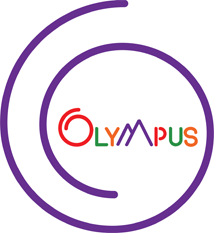Tuesday, September 29, 2015
Fox Chapel kindergarteners are coding with help from Digital Dream Labs
Reading, writing, arithmetic and computer programming? It may come as a surprise to some, but schools are emphasizing computer science and coding at an early age.
Computer programming combines analytical skills and creativity to teach children basic problem-solving. Schools are searching for a way to teach these foundational skills to young children in an engaging way. The question is, how do you make it fun for kids?
Fox Chapel School District and Digital Dream Labs paired up to create the Digital Dream Studio–a technology classroom teaching coding to primary school grades through games.
When the school district was applying for a STEAM (Science, Technology, Engineering, Arts and Mathematics) education grant last year, they didn’t have to look far for technology to implement. Pittsburgh-based startup Digital Dream Labs develops games that teach learning and problem-solving skills.
“The purpose of the grant was to create a classroom full of computers and technology, a way for kids to become familiar with technology in ways that are out of the box or more informal learning than sitting and taking tests,” explains Digital Dream Lab’s co-founder Justin Sabo. “They thought the Puzzlets platform could be a cool thing for the classroom.”
Puzzlets was created by Digital Dream Labs to teach problem-solving and reasoning skills. Similar to other video game platforms, Puzzlets has a console, called a Play Tray, and a controller, the individual Puzzlet pieces used in the tray.
To play the game, kids must insert Puzzlets into the tray to manipulate objects on the screen. In Digital Dream Lab’s first title, “Cork the Volcano,” players must get their character across the screen and avoid obstacles using a sequence of commands, such as jump, run or duck, inserted into the Play Tray.
Puzzlets encourages creative thinking and planning to succeed. As Sabo explains, there’s not just one way to win each level. “We wanted kids to think about a whole problem, rather than piecemeal. You have to put all your Puzzlets in before trying a solution.”
Cork the Volcano focuses on commands and beginner coding skills, but Sabo says future games on the Puzzlets platform will expand their focus to incorporate music, chemistry and other STEAM subjects.
This kind of thinking goes hand in hand with STEAM education by helping children think both creatively and critically.
“We know we’re teaching these kids for jobs that don’t even exist yet,” explains Fox Chapel’s Creativity and Literacy Program Facilitator Alison Francis. “What we’re doing is teaching them how to think and problem solve.”
When 24 Puzzlets made it into the Digital Dream Studio at O’Hara Elementary School last year, Francis wasn’t sure what to expect. Puzzlets is marketed primarily for home use, and Digital Dream Labs hadn’t tested the product in a classroom setting, or with children so young. Fox Chapel started using Puzzlets almost immediately once they received them.
“I used them first with my preschool families, ages three to five. It was incredible to see the problem-solving skills that the kids were using, and their persistence in the task when they had this game to play with these physical manipulatives,” says Francis. The children took to the game easily, and with unexpected results.
In the Digital Dreams Studio, teams of children work together at each console to navigate through the levels.
“They found that when they were playing it with the kids, they weren’t only playing it and getting through it, which was remarkable for kindergarteners, but they also were cooperating very well,” Sabo says. “They were socializing, they were taking turns and weren’t fighting over it.”
The relationship has worked out well for both the startup and the school district. Digital Dream Labs has found a fresh batch of kids to beta test their latest games, and Fox Chapel has found an engaging platform to teach problem solving. “Learning has been joyful for the children,” Francis says. Read More»
By: Emma Diehl, NEXTpittsburgh
